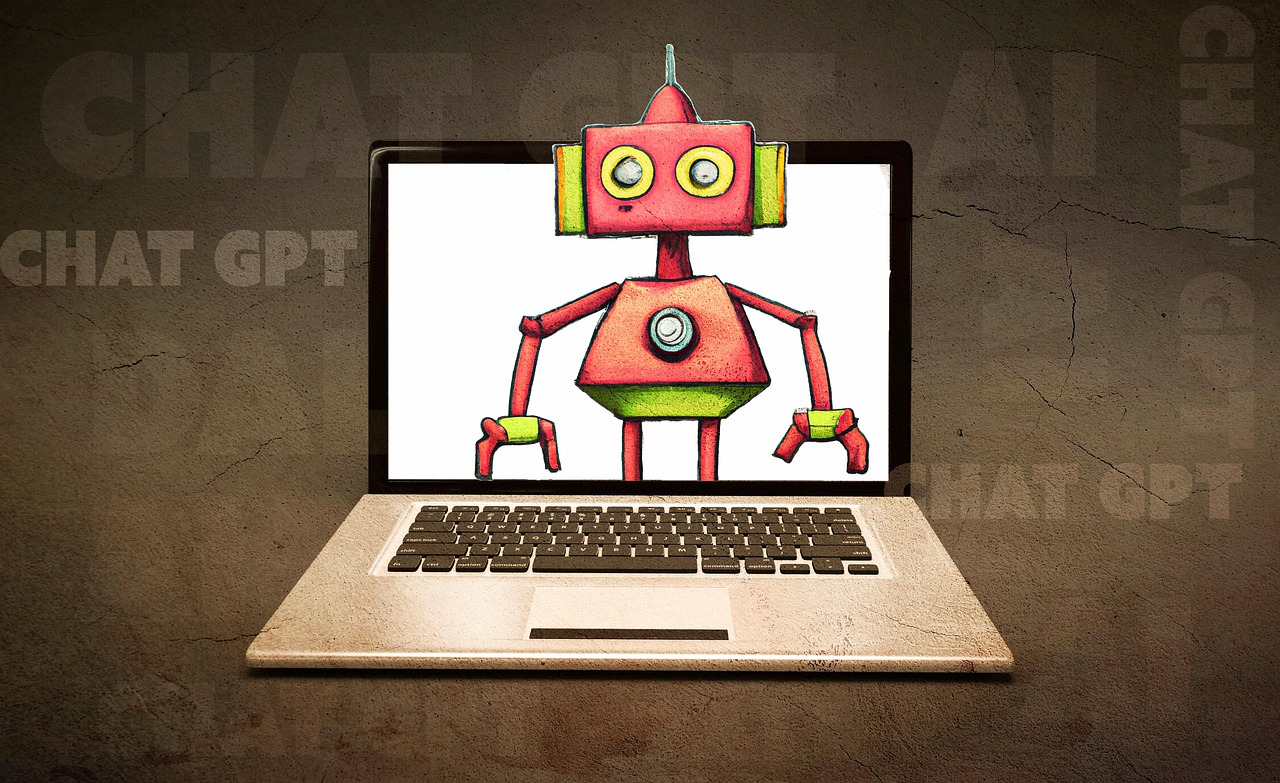The rapid advancement of artificial intelligence (AI) is transforming industries and reshaping our daily lives. From self-driving cars to personalized medicine, AI’s potential seems limitless. However, this powerful technology also raises critical ethical concerns that demand careful consideration. Navigating the complex landscape of AI ethics is crucial to ensure that AI benefits humanity while mitigating potential risks. This post delves into the multifaceted world of AI ethics, exploring its core principles, challenges, and practical implications.
What is AI Ethics?
Defining AI Ethics
AI ethics is a branch of applied ethics that examines the moral principles and values that should guide the development, deployment, and use of artificial intelligence. It addresses fundamental questions about fairness, accountability, transparency, and the potential impact of AI on society.
- It’s a multi-disciplinary field, drawing insights from philosophy, computer science, law, and sociology.
- AI ethics aims to ensure that AI systems are aligned with human values and promote the common good.
- It’s an evolving field, constantly adapting to the rapid advancements in AI technology.
Why is AI Ethics Important?
Ignoring AI ethics can have severe consequences, ranging from biased algorithms perpetuating discrimination to autonomous weapons making life-or-death decisions without human oversight. Proactive consideration of AI ethics is critical for:
- Building Trust: Ensuring AI systems are fair and transparent fosters public trust and acceptance. A 2023 study by the Pew Research Center found that only 22% of Americans trust AI systems to make important decisions.
- Preventing Harm: Identifying and mitigating potential risks, such as bias and privacy violations, can prevent unintended negative consequences.
- Promoting Responsible Innovation: Guiding AI development in a way that aligns with societal values and promotes human well-being.
- Compliance and Regulation: Meeting emerging legal and regulatory requirements for AI systems. The EU AI Act, for example, sets strict rules for high-risk AI applications.
- Enhancing Reputation: Organizations that prioritize AI ethics demonstrate a commitment to responsible innovation and social responsibility, enhancing their reputation and attracting talent.
Core Principles of AI Ethics
Several core principles underpin the field of AI ethics. Understanding these principles is essential for developing and deploying AI systems responsibly.
Fairness and Non-Discrimination
AI systems should be designed and used in a way that is fair and avoids perpetuating or exacerbating existing biases.
- Bias Mitigation: Actively identify and mitigate bias in training data and algorithms. For example, carefully auditing datasets for underrepresentation of certain demographics.
- Equal Opportunity: Ensure that AI systems provide equal opportunities for all individuals, regardless of their background. For example, using diverse datasets when training a hiring algorithm to avoid favoring one demographic over another.
- Algorithmic Transparency: Striving for transparency in how AI systems make decisions can help identify and address potential biases.
Accountability and Responsibility
Clearly defining who is responsible when an AI system makes an error or causes harm is crucial.
- Human Oversight: Maintaining human oversight and control over AI systems, especially in high-stakes applications. For example, requiring a human operator to review and approve decisions made by an AI-powered loan application system.
- Auditing and Monitoring: Regularly auditing and monitoring AI systems to ensure they are performing as intended and not causing unintended harm.
- Explainability: Designing AI systems that can explain their decisions, making it easier to identify and correct errors. Tools like SHAP (SHapley Additive exPlanations) help explain the output of machine learning models.
Transparency and Explainability
Understanding how AI systems arrive at their decisions is essential for building trust and accountability.
- Explainable AI (XAI): Developing AI models that are inherently explainable or using techniques to interpret black-box models.
- Data Provenance: Tracking the origin and processing of data used to train AI systems to identify potential sources of bias or error.
- Clear Communication: Communicating clearly to users how AI systems work and how they might affect them. This includes providing clear explanations of how data is collected, used, and protected.
Privacy and Data Security
Protecting individuals’ privacy and ensuring the security of their data is paramount.
- Data Minimization: Collecting only the data necessary for the intended purpose and deleting data when it is no longer needed.
- Anonymization and Pseudonymization: Using techniques to protect the identity of individuals in datasets.
- Secure Data Storage: Implementing robust security measures to protect data from unauthorized access.
Challenges in AI Ethics
Despite the importance of AI ethics, several challenges hinder its effective implementation.
Bias in Data and Algorithms
AI systems learn from data, and if that data reflects existing biases, the AI system will perpetuate and potentially amplify those biases.
- Historical Bias: Data reflecting past societal biases, such as discriminatory hiring practices.
- Representation Bias: Underrepresentation of certain groups in datasets, leading to inaccurate or unfair predictions.
- Measurement Bias: Inaccurate or biased measurements used to train AI systems.
- Example: A facial recognition system trained primarily on images of white men may perform poorly on individuals of other races or genders.
Lack of Transparency and Explainability
Many AI systems, particularly deep learning models, are “black boxes,” making it difficult to understand how they arrive at their decisions.
- Complexity of Models: The complex architecture of deep learning models makes it difficult to trace the decision-making process.
- Lack of Interpretability Tools: While XAI techniques are improving, many AI systems remain difficult to interpret.
- Proprietary Algorithms: Companies may be reluctant to share details about their AI algorithms for competitive reasons, hindering transparency.
Ethical Dilemmas and Trade-offs
AI development often involves difficult ethical dilemmas and trade-offs, such as balancing accuracy with fairness or privacy with security.
- The Trolley Problem: Autonomous vehicles facing unavoidable accidents must make split-second decisions that involve sacrificing some lives to save others.
- Surveillance vs. Security: AI-powered surveillance systems can enhance security but also raise concerns about privacy and potential misuse.
- Automation and Job Displacement: AI-powered automation can increase efficiency but also lead to job displacement and economic inequality.
Lack of Clear Regulations and Standards
The rapid pace of AI development has outpaced the development of clear regulations and standards, creating uncertainty and potential for abuse.
- Fragmented Regulatory Landscape: Different jurisdictions have different approaches to AI regulation, creating confusion and complexity.
- Lack of Industry Standards: The absence of widely accepted industry standards for AI ethics makes it difficult to ensure consistent and responsible development.
- Enforcement Challenges: Enforcing AI ethics regulations can be challenging due to the complexity of AI systems and the global nature of AI development.
Practical Steps for Implementing AI Ethics
Organizations can take several practical steps to implement AI ethics and ensure their AI systems are developed and deployed responsibly.
Establish an AI Ethics Framework
Developing a clear AI ethics framework that outlines the organization’s values and principles is essential.
- Define Core Values: Identify the core ethical values that will guide AI development, such as fairness, transparency, accountability, and privacy.
- Develop Guidelines and Policies: Create detailed guidelines and policies that specify how these values should be applied in practice.
- Establish an Ethics Review Board: Form a dedicated ethics review board to evaluate the ethical implications of AI projects.
Promote AI Ethics Education and Training
Educating employees about AI ethics and providing them with the skills to identify and address ethical concerns is crucial.
- Develop Training Programs: Create comprehensive training programs on AI ethics for all employees involved in AI development and deployment.
- Provide Access to Resources: Offer access to relevant resources, such as ethical guidelines, case studies, and best practices.
- Foster a Culture of Ethical Awareness: Encourage open discussion and critical thinking about AI ethics throughout the organization.
Implement Bias Detection and Mitigation Techniques
Actively identifying and mitigating bias in data and algorithms is essential for ensuring fairness.
- Data Audits: Conduct regular audits of datasets to identify potential sources of bias.
- Bias Detection Tools: Use automated tools to detect bias in algorithms and predictions.
- Data Augmentation and Re-weighting: Employ techniques to balance datasets and reduce the impact of biased data.
Ensure Transparency and Explainability
Strive for transparency and explainability in AI systems to build trust and accountability.
- Explainable AI (XAI) Techniques: Use XAI techniques to interpret black-box models and understand how they arrive at their decisions.
- Model Documentation: Create detailed documentation of AI models, including their architecture, training data, and performance metrics.
- User-Friendly Explanations: Provide users with clear and understandable explanations of how AI systems work and how they might affect them.
Prioritize Privacy and Data Security
Protecting individuals’ privacy and ensuring the security of their data is paramount.
- Privacy-Enhancing Technologies (PETs): Use PETs, such as differential privacy and federated learning, to protect data privacy.
- Data Encryption: Encrypt sensitive data to prevent unauthorized access.
- Compliance with Privacy Regulations:* Ensure compliance with relevant privacy regulations, such as GDPR and CCPA.
Conclusion
AI ethics is not merely a theoretical exercise; it is a critical imperative for ensuring that AI benefits humanity. By embracing core ethical principles, addressing key challenges, and implementing practical steps, organizations can navigate the complex landscape of AI ethics and unlock the full potential of this transformative technology while mitigating potential risks. As AI continues to evolve, ongoing dialogue, collaboration, and adaptation will be essential to ensure a future where AI is used responsibly and ethically for the benefit of all. Prioritizing AI ethics isn’t just the right thing to do; it’s a strategic necessity for building trust, fostering innovation, and achieving sustainable success in the age of artificial intelligence.




